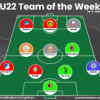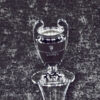When it comes to the playing staff, signings are a great way to improve the squad, both in terms of quality and depth, and indeed, are becoming the most common way. However, onlookers, especially fans of a club tend to derive great joy when a product of the club’s academy makes it through to the first team, and gains importance in it. With this in mind, we will look at some of the best youth academies across the world of football.
This part of the series looks at the best players to emerge from the academy at Sevilla.
INTRODUCTION
Sevilla have been amongst the most impressive of European teams over the past decade and a half, with much attention drawn to their recruitment system. Sporting director Ramón Rodríguez Verdejo – more widely known as Monchi – has more than proven his worth as one of the shrewdest operators in the transfer market. All that said and done, in the modern era, their academy has developed players with top-level ability and potential; players who have gone on to have successful careers at club and international level.

10 BEST PRODUCTS
Note that these are professional footballers who have played in or after 2000.
SERGIO RAMOS // SENIOR DEBUT: 2004
Currently the captain of Real Madrid, Sergio Ramos learnt his trade at Sevilla as one of the brightest prospects in their cantera. Making his debut as a 17-year-old in February 2004, Ramos spent just one and a half seasons with the Sevilla first team before making a €27 million move to Madrid – the fee still stands as the record for a Spanish teenager. Ramos has since gone on to achieve multiple major honours – three La Liga titles, two UEFA Champions Leagues, a UEFA U-19 European Championship, a World Cup, two UEFA European Championships as well as being voted into numerous editions of “best XI” lists.
The Andalusian currently has a frosty relationship with Sevillistas due to the way he left, and the way he has since conducted himself in games against his hometown side. One of the best defenders of his generation, Sergio Ramos has undoubtedly been one of the best ever graduates of the Sevilla cantera.
CARLOS MARCHENA // SENIOR DEBUT: 1997
Although most widely-known for his nine-year spell at Valencia, Carlos Marchena learnt his trade in Sevilla’s cantera. His senior debut with Sevilla came at the age of 18. At youth international level, Marchena won the 1999 FIFA U-20 World Cup alongside Iker Casillas and Xavi, as well as a silver medal at the 2000 Sydney Olympic Games with Xavi and Carles Puyol. A brief three-year spell in Sevilla’s first team was ended in 2000 when the Andalusian club had to sell players to finance their debts. Marchena returned to Spain in 2001, joining Valencia, after a year at Benfica. The central defender went on to be one of the cornerstones of the great Valencia side of the new millenium. Alongside legendary Argentine Roberto Ayala, Marchena won two La Liga titles, one Copa del Rey and one UEFA Cup at the Mestalla.
The Andalusian captained Valencia during his last two years at the club. At Euro 2008, Marchena impressed with a trimphant Spain side and was duly voted into the UEFA Team of the Tournament. After World Cup success in 2010, Marchena was awarded the gold medal for the Royal Order of Sporting Merit by the Spanish government. Carlos Marchena was an underrated central defender of his generation, an immensely reliable presence in defence for Valencia and Spain.
ANTONIO PUERTA // SENIOR DEBUT: 2004
After joining Sevilla in 1993 at the age of 9, Antonio Puerta rose through the Nervionenses’ youth ranks as a high-rated talent – alongside the likes of Sergio Ramos and Jesus Navas. He made his senior debut in March 2004, being subsequently promoted to the first team for 2004/05. . International recognition came with the Spain U21s as well as a lone senior cap for Spain against Sweden in 2006. Arguably the biggest moment of Puerta’s career came on 27 April 2006 – a left-footed strike against Schalke which sent Sevilla through to the 2005/06 UEFA Cup final. Puerta had two UEFA Cup winners’ medals, a Copa del Rey title, and three other major honours to his name at the time of his tragic death.
Antonio Puerta’s number 16 was posthumously retired but Sevilla have since been forced to reinstate the number by the Spanish FA. A street has been renamed after Puerta in his hometown of Nervión. What most football fans associate with the name Antonio Puerta is his tragic death after collapsing mid-game on the pitch at the Ramón Sánchez Pizjuán. However, it is imperative we remember he was indeed a great talent of his generation – a player who was expected to be a regular for Spain at senior level. A technically gifted midfielder, Antonio Puerta was in with a great shout at being a regular of Spain’s all-conquering side of Xavi and Iniesta. Puerta could have been a World Cup winner.
JESUS NAVAS // SENIOR DEBUT: 2003

Jesus Navas celebrates after scoring during the Copa del Rey semi-final second leg in 2013 (Photo by Jorge Guerrero/AFP/Getty Images)
Jesús Navas, the local Andalusian boy who came good at Sevilla, is as exciting a winger as any on his day. Navas joined Sevilla’s youth set-up at the age of 15, and made his first team debut two days after his 18th birthday. Over the decade of success that followed. Forming an incredible partnership with Dani Alves down the right flank, Navas won two UEFA Cups and two Copa del Reys with Sevilla, as well as a World Cup and two UEFA European Championships with Spain – international recognition had been a long-time coming, but Navas first had to overcome chronic homesickness and anxiety.
After World Cup success with Spain, Navas was awarded the gold medal for the Royal Order of Sporting Merit by the Spanish government. Since leaving Andalusia in 2013, Navas has won two League Cups and one Premier League title with Manchester City. Jesús Navas’ pace, technical ability and flair have made him one of the symbols of the fearsome Sevilla side he shone with.
JAVI VARAS // SENIOR DEBUT: 2001
Javi Varas’ career is a markedly different one to the others on this list. Currently first choice at La Liga side Las Palmas, the goalkeeper’s path into professional football came via amateur Andalusian side AD Nervión. Varas was signed to Sevilla’s reserve side in 2003, a few months before his 21st birthday. After two seasons out on loan to lower division sides San José and Alcalá, Javi Varas returned to contribute thirteen appearances in 2006/07 as Sevilla Atlético won promotion to Spain’s 2nd-tier for the first time ever.
Five years after first joining his hometown side, the Spaniard was incorporated into the Rojiblancos’ first team – he eventually replaced club stalwart Andrés Palop as first choice in the Sanchez Pizjuan goal. Despite spending only two and a half seasons – a spell interrupted midway by a year on loan at Celta de Vigo – as first choice, Javi Varas has already achieved more than he could have ever dreamed of when playing as an amateur. His crowning moment? Playing half the games as Sevilla won the Europa League in 2013/14.
LAUREN ETAME MAYER // SENIOR DEBUT: 1995
More widely known by simply his first name, Lauren Étamé Mayer is best known for his time at Arsenal. Lauren moved to Spain with his family at a young age, amidst socio-political chaos in Equatorial Guinea. Lauren joined Sevilla as an 11-year-old, playing as a centre forward. Aged 19, he left Sevilla as a central midfielder. After impressing as he moved up the levels from CD Utrera, Sevilla Atletico and Levante, Lauren was converted to a right back under Héctor Cúper’s tutelage at Mallorca. With interest from Real Madrid, Lauren subsequently signed for Arsenal in 2000. Under Arsene Wenger, Lauren was an unsung hero of the Gunners’ Invincibles side of 2003/04.
At international level, Lauren played for the country of his birth (Cameroon) instead of the country of his parents (Equatorial Guinea). After his 1998 World Cup was ended by an infamously quick red card, Lauren went on to win two African Cup of Nations and an Olympic gold at the 2000 Olympic Games in Sydney. The two-time Premier League champion retired from international football prematurely in 2002 after disagreements with the Cameroonian FA.
SALVA BALLESTA // SENIOR DEBUT: 1994
A perennial journeyman over his sixteen years as a pro, Salva Ballesta came through Sevilla’s youth academy, spending three seasons in the first team. He left, aged 23, in 1998 for Racing Santander. In 1999/2000, Ballesta scored 28 goals for Racing Santander to win the Pichichi award. The Zaragoza-born forward dropped down a division in 2000/01 to join Atlético Madrid. 21 goals won him the Pichichi in Spain’s 2nd-tier but Atleti failed to gain promotion that year. He scored five goals to help Valencia win La Liga, ending a 31-year drought for Los Che.
Salva Ballesta ended his career with a healthy goalscoring record for numerous clubs, from Atlético Madrid (where he spent two separate seasons) and Malaga to Levante and Albacete. Ballesta also had a brief spell in the Premier League at Bolton Wanderers. Off the pitch, Salva Ballesta is known for his outspoken character and nationalistic beliefs, which have got him into trouble and controversy on a number of occasions. Salva Ballesta is not a name familiar to most football fans. That said, the four-cap former Spain international has done well for himself as a professional.
JOSE ANTONIO REYES // SENIOR DEBUT: 1999
Jose Antonio Reyes, born in Utreta, Sevilla to Gitano (Gypsy) parents in 1983, joined the Sevilla cantera at the age of 10. Regarded by many to be a prodigious talent, Reyes represented Sevilla in all age groups, and Spain at multiple youth levels – winning the UEFA U-19 European Championship in 2002. He made his first team debut as a 16-year-old, and spent four years at the Ramón Sánchez Pizjuán before a £17 million move to Arsenal, who had just completed their Invincibles season.
After leaving Arsenal in 2006, Reyes’ career has since taken in spells at Real Madrid, Atlético Madrid and Benfica – he amassed a La Liga title, a UEFA Europa League and a Portuguese League Cup over those six years. Reyes currently plays for Espanyol, after rejoining Sevilla in 2011 and winning three Europa League titles with his hometown side. His technical ability, intelligence and flair gave many fans edge-of-your-seat moments. José Antonio Reyes has done well in his career, yet much more was expected from this mercurial talent as he came through the ranks at Sevilla.
DIEGO CAPEL // SENIOR DEBUT: 2004
Diego Capel was a star that shone twice as brightly at the start but burnt out twice as fast. Born in Almeria, Capel joined Sevilla at the age of 13 after a brief spell at Barcelona’s La Masia. The winger made his senior debut for Sevilla as a 16-year-old in 2004. He went on to alternate between the first and reserve sides – principally playing for the latter – until his breakthrough in 2007 after the tragic death of Antonio Puerta. At youth level with Spain, he won the 2006 UEFA U-19 European Championship and the U-21 Euros.
After winning the UEFA Cup as a fringe player in 2005/06, Capel spent four years as a first team regular between 2007 and 2011. Two Copa del Reys and another UEFA Cup were added to his tally during those four years. Capel has been a journeyman since leaving Sevilla in 2011, with moves to Sporting CP, Genoa and his current club Anderlecht. Two assists on his senior debut for Spain as a 20-year-old signalled much promise, but Capel’s flame has since flickered rather than blazed.
ALBERTO MORENO // SENIOR DEBUT: 2011
Alberto Moreno joined the Nervionenses at a young age, and experienced football at the professional level in 2011/12 with Sevilla Atlético. Shortly after, on 8 April 2012, Moreno made his first team debut against Basque outfit Athletic Club. After going on to establish himself at the Sánchez Pizjuán as a left back, Moreno went from strength to strength – he was named in the Team of the Tournament as Spain convincingly won the 2013 UEFA U-21 European Championship.
The Sevilla-born defender made his debut for Spain under Vicente del Bosque in October 2013, playing the full ninety minutes in a 2-0 win over Georgia. The left back was one of seven players cut from del Bosque’s final 23-man squad for the 2014 World Cup. A formidable attacking presence from full back, he has been inconsistent since joining Liverpool for £12 million in 2014. That said, the three-cap Alberto Moreno has undoubtedly been a success story for Sevilla’s cantera.
THE FUTURE
18-year-old Alex Pozo, currently one of the youngest players on the Sevilla Atlético squad, is one of the pearls of the Sevilla academy right now. The exciting winger was named, in 2016, amongst the 60 most promising talents in world football by British media outlet The Guardian. José Amo is regarded in Spain as one of the most promising talents for his age group. Manchester City reportedly tried to sign the 18-year-old centreback whilst he was still on a youth contract.
21-year-old Antonio Cotén has played for Spain at youth level and is a tidy, technically proficient central midfielder. He has already made a handful of first team appearances for Sevilla. Aged 20, Carlos Fernández is a promising centre forward who will be hoping to kick on into the first team after he recovers from an ACL injury suffered in October last year. Right winger “Curro” Sánchez has played for Spain’s youth sides and will be hoping to add to his four senior appearances for Sevilla.
Rather than their academy, Sevilla owe most of their success to their – Monchi and his team of scouts, anyway – nous in the transfer market. A keen eye for signing great talents and/or underappreciated players for low prices before selling them for huge fees has allowed them to consistently build, euro-for-euro, one of the strongest teams possible. That said, there are some great talents in their youth set-up who could one day emulate the successes of Sergio Ramos, José Antonio Reyes, Jesús Navas, and Carlos Marchena.
You can read other articles in the series here
- Scout Report: Thomas Lemar | AS Monaco’s playmaking maestro - June 5, 2017
- The Academy Series | 10 best Sevilla products: Sergio Ramos, Marchena, and Jesus Navas feature - March 25, 2017
- Newcastle United: All aboard the Rafalution - August 8, 2016

























































